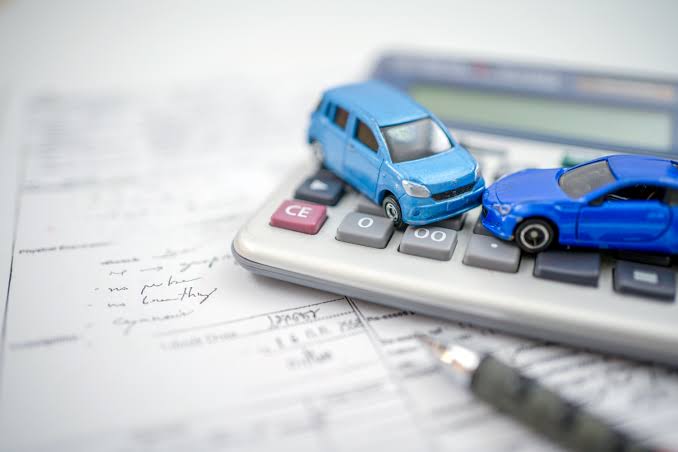Introduction
Car insurance companies use tracking devices to monitor your driving and set your rates. These little devices plug into your car’s diagnostic port and track information like your speed, braking, mileage, and time of day you drive.
How do the devices work?
The devices connect to your car’s onboard diagnostics (OBD-II) port, found under the dashboard. They collect data about your driving and send it to your insurance company, usually via cellular networks.
Some devices just track basic info like mileage, speed and location. More advanced trackers detect, braking, cornering, and acceleration to determine your driving “score”. The worse you drive, the higher your rates may go.
Your insurance company claims these devices make rates fairer by charging less for safe drivers. But there are some big downsides to consider:
1. Privacy concerns. Do you really want your insurance company monitoring where you drive 24/7? They may track locations, see where you work or live, and know your daily routine.
2. Inaccurate data. Devices can make mistakes and report “unsafe” events that never happened. This could wrongly increase your rates.
3. Rate hikes. While good drivers may get discounts at first, rates often creep up over time as companies look for more ways to boost profits.
4. Resale value. A tracker installed in your car may turn off buyers and hurt your vehicle’s resale value.
Note: Before signing up for one of these programs, weigh the potential downsides.
READ ALSO: 9 Things You Must Keep in Mind When Taking a Loan
Privacy Concerns With Tracking Devices
Some of these devices pose some serious privacy risks you should consider before signing up.
1. Your Information is Shared Widely
Once an insurance company has access to your data, there’s no telling who else they’ll share it with. They frequently sell driver data to third parties for advertising and profiling purposes. Suddenly countless companies know where you go and when.
2. They Track More Than Just Mileage
Insurance tracking devices log your vehicle’s location, speed, and time of travel. Some even record acceleration, braking, and cornering forces. They know if you’re speeding, driving late at night, or taking “risky” routes. That data could be used against you to raise your rates or even cancel your policy.
3. The Data isn’t Secure
No system is 100% hack-proof. Insurance telematics systems are attractive targets for cybercriminals looking to access people’s personal data or vehicle controls. There have already been cases of these systems being hacked, putting customer privacy and safety at risk.
4. You Have Little Control or Transparency
Once a tracking device is installed, you have limited ability to see what data is being collected or how it’s used. You can’t choose to disable tracking for certain trips or be notified if your data is breached. You’re mostly at the mercy of your insurance company and whatever privacy policy they’ve put in place.
For many, the risks of using an insurance tracking device far outweigh any discounts. If privacy is important to you, you’re better off avoiding these controversial systems altogether.
The Potential for Discriminatory Rates
Many car insurance companies now offer discounts if you allow them to track your driving using telematics devices. While the potential savings may be tempting, these programs come with risks to your privacy and pocketbook that you should consider carefully.
Tracking devices monitor details about your driving like time of day, location, speed, and braking force. The data is transmitted to your insurance company, allowing them to determine your rates based on your actual driving habits. However, this data could potentially be accessed by unauthorized parties, compromising your privacy. There is also the possibility of the data being used to discriminate against certain drivers.
For example, if the data shows you frequently drive late at night or in a high-crime neighborhood, the insurance company may deem you a “risky” driver and raise your rates, even if you have a perfect driving record. Some critics argue these practices unfairly target and penalize certain socioeconomic groups.
READ ALSO: The Perils of Taking Debt: How to Avoid and Manage Debt
The Risk of Technical Issues and Inaccurate Data
Using car insurance tracking devices may seem appealing for the discounts, but there are risks to be aware of. These devices can provide inaccurate data and encounter technical issues, potentially raising your rates when you’ve done nothing wrong.
These flawed readings and system errors can ultimately raise your premiums through no fault of your own. While insurance companies claim the devices provide more accurate data, that is not always the case. The technology is still imperfect, and you may end up paying more for car insurance as a result of the devices’ inaccuracies.
Before opting for an insurance tracker, make sure you understand the risks of technical and system issues. You don’t want to be penalized for events that never actually happened. It may be worth forgoing the initial discounts to avoid the potential headaches of disputing false data and unfair rate increases down the line. Constantly monitoring your driving data and alerts is tedious work, and no one wants to be tethered to a faulty system.
Alternatives to Tracking Devices for Lower Rates
Instead of using a tracking device to lower your car insurance rates, consider these alternative options:
1. Bundle your policies
Bundling your car insurance with other policies like home or life insurance can qualify you for a multi-policy discount of up to 30% off your premiums. The more policies you bundle, the bigger the potential savings.
2. Raise your deductibles
Increasing your deductibles—the amount you pay out of pocket for a claim before your insurance kicks in—can lower your premiums significantly. Raising your deductibles from $250 to $500 can save you up to 15% on your premiums. Just make sure you can afford the higher deductibles if you do have a claim.
3. Improve your credit score
In many states, your credit score is used to determine your car insurance rates. Improving your score over time through paying bills on time and limiting new credit applications can help lower your premiums. Check your score and reports regularly to ensure there are no errors negatively impacting your score.
4. Drive safely
Your driving record also helps determine your rates. Avoid accidents, traffic violations and claims to maintain a clean record. Safer driving means lower risk to the insurance company and lower premiums for you. Consider a usage-based insurance program that can track your safe driving and offer discounts for good driving habits.
5. Compare quotes frequently
Compare quotes from different insurers at least once a year to find the best deal. Rates and discounts change over time based on many factors. You may be able to save hundreds per year by switching to a lower-cost policy with similar coverage. Comparison shopping is the only way to know if you’re still getting the best value.
READ ALSO: How to Get a Quick Loan Online Using Financial Instruments: A Practical Guide
Conclusion
Following these alternative ways to lower your rates can help you avoid using a tracking device to save money on your car insurance.






